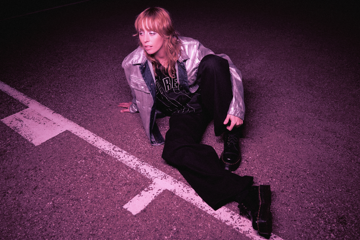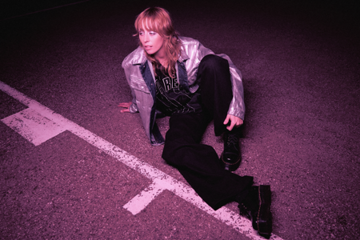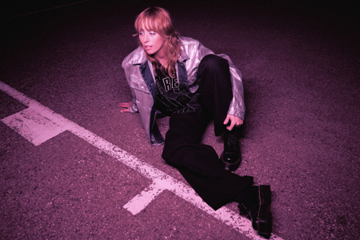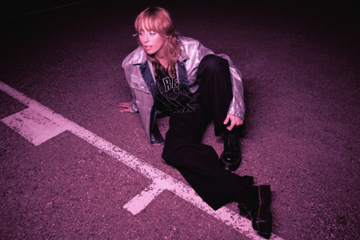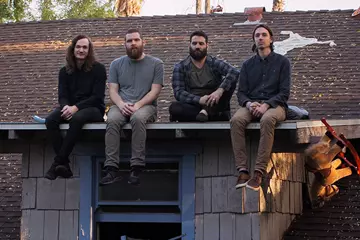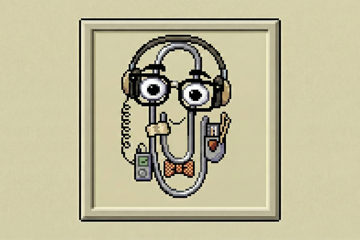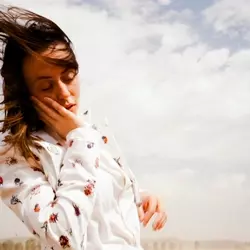 Gordi
GordiSophie Payten, known artistically as Gordi, has spent the past five years slowly and deliberately crafting her third studio album, Like Plasticine—a project that is as raw and poetic as it is refined. Currently on tour with Foster The People in the UK, we caught up with her via Zoom to talk about the deeply personal journey that led to the birth of this record.
“I think of it in chapters,” Gordi says, speaking of the album’s expansive evolution. “Chapter zero was me not being able to write anything; that was during the pandemic. I was working in hospitals a lot, and I was finding it really hard to write any music.”
Despite the creative block, an undeniable feeling was brewing - something unspoken that she knew needed to come out. Taking herself to Phoenix Central Park in Sydney for a week-long residency, Gordi paced the room, listening to the loops she had recorded, until the fog started to lift and the creativity flowed.
“I felt like I had songs to write, but I just couldn’t get them out,” she explains. “I would walk in each morning and open the grand piano lid and press record and just record something—some little spine of a song.” Six months later, she repeated this process at a church in Alexandria, continuing to untangle the threads.
Don't miss a beat with our FREE daily newsletter
These early recordings became the backbone of Like Plasticine, with later chapters unfolding around the world: from sessions in LA to collaborative moments with producer Brad Cook in North Carolina, before bringing everything back home to Melbourne, where the record finally took shape.
With a medical background and her feet planted in two very different worlds, Gordi found herself thrust back into hospital work during the peak of the COVID-19 pandemic. “As everyone remembers during that time, no one could really do anything in music,” she says. “So, it felt like my music career had been swallowed whole by the pandemic. The upside was that I was actually allowed to leave the house every day to go to work, and a lot of people couldn’t do that.”
However, balancing her scientific and analytical mind with her creative side was no easy feat. “In the face of global catastrophe, I had pretty existential questions about music and what it meant,” she admits. “There was so much dialogue around that time about what was essential to life… In light of that conversation, I found it really hard to come home and be like ‘I’m going to write a song’. That just seemed like an insane prospect with what was going on.”
It’s something many artists struggled with during that period, that tug-of-war between purpose and passion in a time of crisis. As the conversation around the importance of art began to shift, Gordi found clarity: “Sure, maybe it’s not essential to survival, but it is essential to living.” This is a powerful sentiment that lingers in the bones of Like Plasticine, and one that I’m sure every creative would agree with.
The title itself was inspired by her experiences with mortality in the hospital. Observing a person who was no longer responding to medication, Gordi took note of the waxy, still skin—a malleable, soft substance that reminded her of plasticine. This theme is explored within the record as Gordi delves into all the aspects of life in which we are like plasticine: how the things we can’t control shape and stretch us, testing our limitations and forcing us to undergo painful transformations, and finding the beauty in it.
Another major influence on the record was her experience of coming out a few years prior. She reflects on this deeply personal time as both beautiful and devastating, acknowledging the powerful and undeniable influence it’s had on her work.
“There’s definitely some moments on this record which are angry, disillusioned, confused and hurt, like Your Consolation Prize and Diluted,” she shares. “I listen to them now and think, ‘Damn, I was really in it when I was writing those songs.’”
Vulnerability courses through the album, delivered with the kind of self-awareness that comes only after walking through the fire. “Like anything, queerness is no exception; it’s a sort of journey. I feel that it has been relatively linear for me. In saying that, I feel at the best possible point in that journey, with where I am now.”
When it comes to her songwriting, Gordi has always been introspective, but sharing those emotions publicly can still be a confronting experience. “When you’re making an album, you’re basically trying to say the unsayable in music; things you can’t always articulate.
“When the time comes for the record to come out, then you start answering questions about it, and you’re trying to turn the unsayable back into something you can articulate. I found that really challenging because a lot of these things I was saying about coming out and understanding my own queerness, it was the first time I was saying a lot of that stuff. And I wasn’t saying it to a friend, I was saying it to someone writing an article.”
Despite these challenges, she recognises the power of being authentic through her music and the influence that it can have. Recalling the first time she heard The Sound Of White by Missy Higgins, she shares, “I think back to being 12 years old and listening to it for the first time and thinking, ‘Damn, I feel like I’m reading someone’s journal.’ But what a gift, out of that record was born a generation of songwriters who are doing the same thing.”
The latest single from Like Plasticine is GD (Goddamn), a stunning track that explores the complicated but natural shift that occurs when you watch your family grow up, starting their own families and splintering off. “There’s a sense of loss in that. All the time you’ll never get back and probably didn’t appreciate at the time,” she reflects.
There is a particular sound in this track that makes it stand out against the rest of the record, something I couldn’t quite put my finger on upon listening. When I ask her why, Gordi laughs, “‘Why?’ is a good question that I don’t know I have an answer for…I was talking to a friend of mine about this feeling. We had been out for drinks and the next morning I woke up and wrote this poem, which were the lyrics for Goddamn.”
Wanting to capture the moment in its rawest form, Gordi pressed record on her phone. “I had this little Casio keyboard... I just pressed play, started singing, and recorded it on my iPhone.” Attempts to re-record it in a studio fell flat, causing the track to lose its sense of authenticity. With nothing feeling as real as that first take, she ran the iPhone recording through analogue tape to preserve the lo-fi charm. This clever decision provides a unique listening experience, creating the sensation of looking through a window as you watch your life unfold, almost as if you’re watching time pass by.
Other tracks took longer to click. Your Consolation Prize, for example, haunted her long after finishing recording it in North Carolina. “I got back to Australia, and I kept having dreams about the song. I was like, ‘I just don’t like the chorus.’” After a complete rewrite of the chorus, the track finally came together, proving that persistence can pay off creatively and revealing a renewed energy that made the song feel complete.
There’s a lot of heartbreak on Like Plasticine, but there’s joy in there too—moments of lightness which float up through the instrumentation, harmonies and the most unexpected stories. On PVC Divide, Gordi reflects again on the heavy time spent working during the pandemic.
“I just thought that I wouldn’t want to listen to an entire record that is just roaming on about how brutal the pandemic was,” she explains. So, she introduced a little drum loop, sat at the piano and improvised a whimsical, hopeful solo.
This song was also heavily shaped by a particularly moving interaction with a patient. After receiving devastating news that his cancer had returned, and rather than going home, he would be moving into palliative care, where he would live out his remaining weeks, the man calmly responded: “This is what was written for me.”
“I just found that such a powerful sentiment, that in the face of absolute tragedy, he was able to find this resilience and optimism about what life is.” Gordi reflects. “I was just completely moved, and I wanted to try and capture the feeling I had listening to him speak in that song.”
And capture it, she does. Like Plasticine is truly a beautiful piece of work—one that delicately touches on the human experience without feeling forced or overly sentimental.
It’s a record full of contrasts: it’s raw yet refined, intimate yet expansive and heavy at times, but always grounded in hope. Across these songs, Gordi lets us into her world with remarkable vulnerability, peeling back layers of identity, grief, love and transformation.
Her lived experience, shaped by a unique blend of medical training and creative artistry, gives her songwriting clarity and weight that feels entirely her own, but there’s still something universal at play.
Chatting with Gordi, it’s clear to see the passion that has been lovingly poured into crafting this record. As the release date draws near, the excitement is palpable, and her longing to have this album out in the world is finally coming to fruition. Like Plasticine is ready to be heard in all its quiet, aching brilliance.
Like Plasticine will be released via Mushroom Music on Friday, 8 August. You can pre-order/pre-save the album here.



